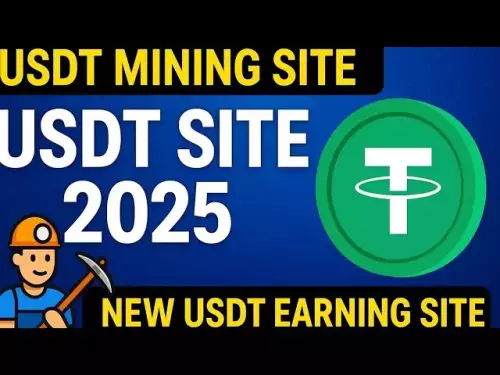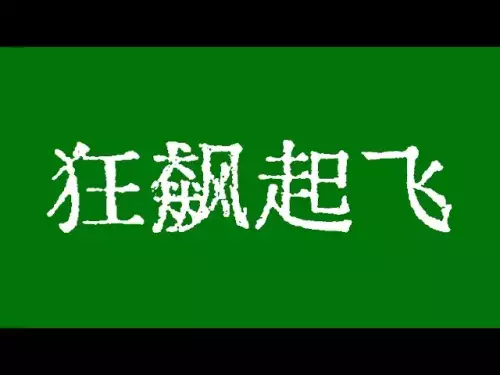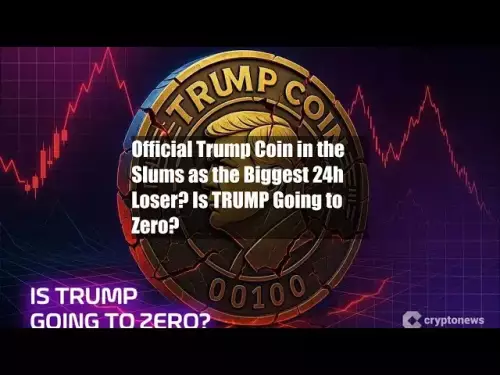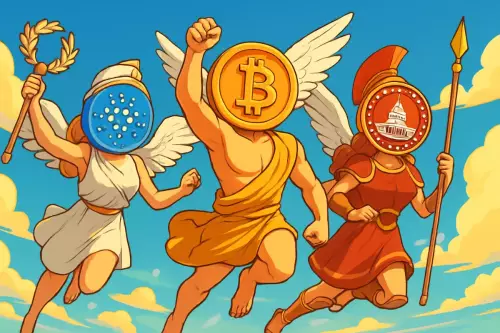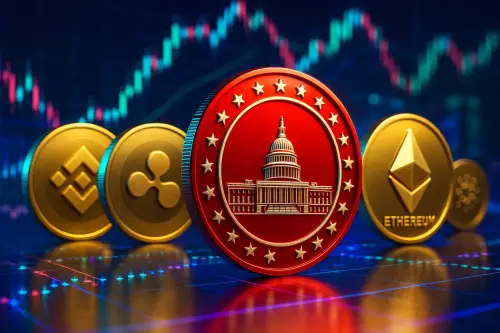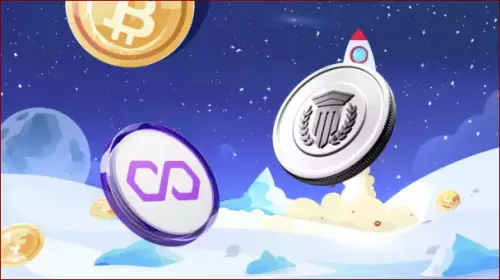 |
|
 |
|
 |
|
 |
|
 |
|
 |
|
 |
|
 |
|
 |
|
 |
|
 |
|
 |
|
 |
|
 |
|
 |
|
Cryptocurrency News Articles
Uniswap, DUNI, and DAO Governance: A New York Minute on DeFi's Next Big Thing
Aug 13, 2025 at 05:39 am
Uniswap's DUNI proposal is shaking up DAO governance, offering a legal framework for DeFi's decentralized future. Is this the key to unlocking the fee switch?

Uniswap, DUNI, and DAO Governance: A New York Minute on DeFi's Next Big Thing
The buzz around 'Uniswap, DUNI, DAO governance' is electric, like Times Square on New Year's Eve. Uniswap's proposal to establish a legal entity, DUNI, under Wyoming's DUNA law, is a game-changer for DeFi governance.
What's the DUNI Deal?
In essence, DUNI is a legal wrapper for the Uniswap DAO, allowing it to operate more effectively within traditional legal and regulatory frameworks. Think of it as a suit and tie for your favorite crypto project. It doesn't change the core decentralized nature of Uniswap, but it does provide liability protection for governance participants and enhances the DAO's ability to engage in off-chain activities.
Why Wyoming?
Wyoming's DUNA framework is becoming the go-to model for DAOs seeking legal recognition without sacrificing decentralization. It's like finding the perfect speakeasy – discreet, yet legitimate. By leveraging this structure, Uniswap aims to set a precedent for other DAOs navigating similar challenges. Senator Cynthia Lummis has acknowledged the state’s progressive digital asset laws, underscoring the significance of this development.
The Fee Switch and UNI's Potential Rally
One of the most exciting aspects of the DUNI proposal is the potential activation of the fee switch. This would redirect a portion of liquidity provider (LP) fees to the protocol treasury, creating new revenue streams for UNI token holders. Following the announcement, UNI experienced a price surge, reflecting the market's optimism. Crypto Tony suggests that if UNI can reclaim the $12.00 level, it could signal strong bullish momentum, potentially driving the price toward $14.00.
DAO Governance: A Balancing Act
Uniswap's move towards DUNI reflects a broader trend in DAO evolution, where legal recognition is increasingly seen as essential for long-term sustainability. It's a delicate balancing act – maintaining decentralization while engaging with legal and regulatory requirements. Other DAOs like Shiba Inu are also experimenting with governance models, but face challenges like whale dominance in voting power.
My Two Satoshis
While the DUNI proposal is a step in the right direction, it's not a silver bullet. The crypto space has been full of projects that were hyped to death. It's crucial to consider what could happen if DUNI is approved. Here is my take:
- Increased Adoption: A clear legal framework could attract more institutional investors and users to Uniswap.
- Regulatory Scrutiny: With legal recognition comes increased scrutiny from regulators.
- Centralization Concerns: While DUNI aims to preserve decentralization, there's a risk that the legal structure could lead to centralization of power.
My personal take is that DUNI will lead to more scrutiny and regulatory oversight. But if Uniswap can prove they are really decentralized and committed to their user base, then the DUNI framework will ultimately lead to increased trust and adoption from the traditional finance world.
The Road Ahead
The Uniswap Foundation has emphasized that the DUNI structure is a critical step toward the long-term viability of the Uniswap DAO. As the proposal moves through the governance process, its reception will be closely watched by the crypto community. It is a landmark proposal, and will surely affect the broader DeFi ecosystem.
So, What's Next?
Keep an eye on Uniswap's governance forums and market movements. The DUNI proposal is more than just a structural update; it's a glimpse into the future of DAO governance. And in the fast-paced world of DeFi, you don't want to miss a beat. Until then, keep stacking those sats and stay frosty!
Disclaimer:info@kdj.com
The information provided is not trading advice. kdj.com does not assume any responsibility for any investments made based on the information provided in this article. Cryptocurrencies are highly volatile and it is highly recommended that you invest with caution after thorough research!
If you believe that the content used on this website infringes your copyright, please contact us immediately (info@kdj.com) and we will delete it promptly.






















